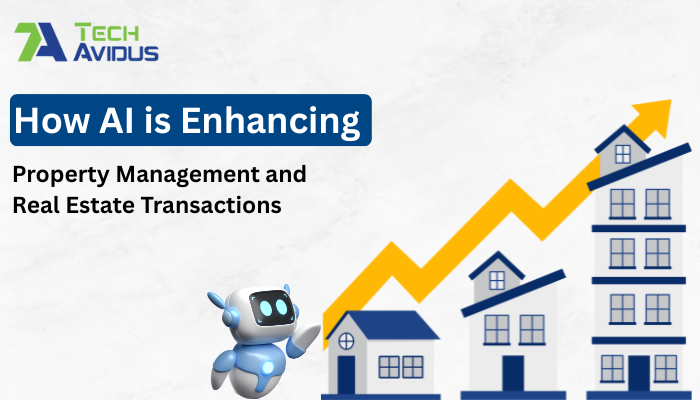
The integration of Artificial Intelligence (AI) into property management and real estate transactions is revolutionizing the industry. From automating routine tasks to improving decision-making, AI has become a powerful tool for real estate professionals and property managers. This technological advancement is not just about enhancing efficiency but also creating a seamless, data-driven experience that benefits both property managers and tenants.
In this blog, we'll explore how AI is making a significant impact in property management and real estate transactions, offering smarter solutions to age-old problems.
Property management involves juggling various tasks, including rent collection, maintenance requests, tenant communication, and lease management. Traditionally, these tasks were handled manually, requiring significant time and effort. AI is automating many of these processes, reducing the administrative burden on property managers and enabling them to focus on strategic activities.
AI-powered platforms can handle routine tasks such as sending payment reminders, processing payments, and scheduling maintenance requests. This automation not only saves time but also ensures a smoother, more efficient operation. Furthermore, AI can predict maintenance issues before they become problems, helping property managers proactively address issues and reduce downtime.
Statistical Insight: According to a Deloitte report, 64% of real estate companies are using AI to enhance operational efficiency and reduce operational costs, including property management tasks.
Real estate transactions involve multiple steps, from property search and valuation to negotiation and final sale. These processes often take weeks or even months to complete, with many manual steps prone to human error. AI is transforming this space by improving speed, accuracy, and decision-making.
For instance, AI-powered algorithms can analyze vast amounts of real estate data, such as property values, historical trends, and buyer preferences, to deliver accurate property valuations. This helps buyers and sellers make data-driven decisions, reducing the likelihood of overpaying or undervaluing a property. AI can also streamline paperwork by automating document generation, allowing for quicker transactions.
Tenant screening is a crucial aspect of property management. Traditionally, property managers had to manually review applications, check references, and evaluate tenant suitability. This process can be time-consuming and often leads to biases or errors.
AI is helping property managers by providing more accurate tenant assessments. AI tools can analyze various factors, such as rental history, credit scores, and background checks, to assess the reliability of a tenant. This ensures that property managers select tenants who are more likely to pay rent on time and maintain the property well, reducing risks and improving tenant satisfaction.
McKinsey found that AI-driven tenant screening can reduce the risk of eviction by up to 40%, contributing to a healthier rental business.
Managing leases is another essential part of property management. With multiple tenants, lease renewals, and rent payments, keeping track of everything manually can lead to mistakes and missed deadlines. AI can automate many aspects of lease management, including reminders for lease renewals, rent collection, and processing payments.
AI-powered systems can send automatic reminders to tenants about upcoming renewals, reducing the chances of missed deadlines. Additionally, AI can track payment histories and automatically process payments, reducing administrative overhead and improving cash flow management.
The future of AI in property management and real estate transactions is promising. As technology continues to evolve, AI will become even more integrated into the industry. We can expect AI-powered chatbots to handle customer service inquiries, virtual assistants to manage maintenance requests, and predictive analytics to identify investment opportunities.
AI is also expected to play a significant role in real estate marketing, helping agents target the right audience with personalized ads based on their preferences, budget, and location. The ability to predict market trends and buyer behavior will give real estate professionals a competitive edge in an increasingly crowded market.
At TechAvidus, we understand the impact AI can have on property management and real estate transactions. Our team of experts can help you integrate AI-powered solutions into your business to streamline operations, enhance tenant satisfaction, and improve overall efficiency.
If you are looking to leverage AI for property management or real estate transactions, we offer customized solutions designed to meet your specific business needs. Get in touch with us today to learn how AI can transform your real estate operations.
We have the most experienced Top 1% of Tech Talent Teams who can deliver superior technology solutions.
All Rights Reserved. Copyright © 2025 | TechAvidus